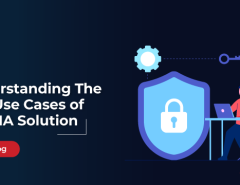The global research and advisory firm Gartner estimated that worldwide information security spending would exceed $124 billion in 2019. The reason for such spending in information security is justified when one looks at the consequences of ignoring the risk – a study estimated that the average cost of a data breach rose 12% over the last few years to $3.92 million.
Cyber attacks don’t discriminate – they attack organizations of all sizes and in every sector.
Yahoo, Equifax, Target, British Airways and many others can validate the fact that attacks can happen to every business.
Where the attackers have a clear advantage over an organization is continuous attempts at penetration – an organization can fend off as many attacks as it wants but it just needs that one vulnerability to ingest brutal malware in the fabric of the enterprise.
The consequences can be disastrous – an idea of the financial cost has already been provided but even from a reputation perspective, there are major repercussions.
It’s quite clear that cybersecurity is a significant concern. In fact, the aftermath of ignoring it can be massive and hence it’s too big an issue to be dealt with only by the IT department.
While IT can definitely drive cyber protection, it is also a business concern and hence all stakeholders must be a part of it.
Welcome to the digital world
Brick-and-mortar businesses are disappearing rapidly – the ones sustaining have to adapt to digitalization in order to thrive. This is because almost all businesses in today’s world have gone or are thinking of going digital.
That’s the way to the future – e-commerce behemoths like Amazon have proved that billion-dollar businesses can be built only on the basis of digitalization. This, by itself, tells you the huge scale of risk – malware attacks channelized through the world wide web are go-to strategies for cyberattackers.
Hence, business strategies have to be built keeping in mind the threat landscape for digital platforms.
It’s never-ending
The United Kingdom’s Federation of Small Businesses (FSB) estimated that small businesses suffer 10,000 cyber attacks daily. And this is just in the UK!
The fact is that cybersecurity is a relentless concern and enterprises can never reach a point where they feel that the perfect wall of defence has been laid.
It’s too much for just an IT team to handle and that is why enterprises should make it a business-wide concern.
All departments have a role to play in information security
Cybersecurity is an enterprise essential and is predicted to be one of the biggest trends for the next decade. It is imperative that all departments, not just IT teams, understand that.
For example, a sales team must be aware of the cybersecurity protocols set by their organization so they can convey these to prospective customers.
Marketing teams are in control of an enterprise’s communication and they must understand the cybersecurity perspective to convey the message to internal and external stakeholders.
Even from a finance perspective, understanding cybersecurity helps in quantifying damage or predicting an ROI due to the measures taken.
It’s quite clear from the above points that cybersecurity has become an important business concern that shouldn’t have stakeholders only expecting the IT department to deal with.
All departments must collaborate and align with each other to fight cybersecurity risks and help enterprises prosper in this digital age.




